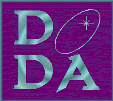You are here
Conflict of Interest Policy
The recipient selection for the DDA’s yearly awards (Brouwer, Rubin and Duncombe) presents the potential for various real or perceived conflicts of interest. Any professional relationship or action that may either be, or may be seen as, a conflict of interest should be fully disclosed.
-
Nominees for a given award cannot serve on the relevant award committee, participate in the award review by the DDA committee, or be involved in the award deliberations in any way.
-
Former Ph.D. or postdoctoral mentors, recent close collaborators, reference letter writers, colleagues at the same institution, and family or people with close personal relationships should not be involved in the selection of a nominee.
Reviewers with a real or perceived conflict of interest should recuse themselves from discussions and voting on the nominee in the awards committee and the DDA committee. When in doubt, members should disclose and ask for clarification. It is also unethical to seek to gain an advantage for that nominee by means of reviewing the work of others, either through use of private information or biased reviews of other’s work. Privileged information or ideas that are obtained through peer review must be kept confidential and not used for competitive gain.
Although not all conflicts of interest require recusal, disclosure is critical. The chair of the review committee should document any conflicts of interests brought forward, as well as actions taken (e.g., recusal, determination that a relationship is distant enough or far enough in the past for an objective evaluation). The chair should submit this documentation together with the committee’s recommendations. If a conflict of interest cannot be properly managed, the review should be discontinued until the DDA committee provides a resolution.
In the case that the committee chair recuses themselves due to a conflict of interest, an ad-hoc chair should be appointed to take on that role.
If conflicts of interest for a particular candidate leave only 1-2 evaluators (especially relevant for the Duncombe prize committee, with only 3 members), and the unconflicted members deem the candidate competitive for the award, the committee chair may choose to solicit an external evaluation of competitive candidates from an unconflicted member of the DDA committee.
A prize selection committee member can not also be in the pool of award candidates. In such cases, the committee chair should find a replacement. In cases where the chair of the selection committee is nominated, the DDA chair will make the appointment.
This conflict of interest policy draws on both the American Astronomical Society’s conflict of interest document, as well as the recommendations in the 2016 DDA Awards Review Committee’s report.
